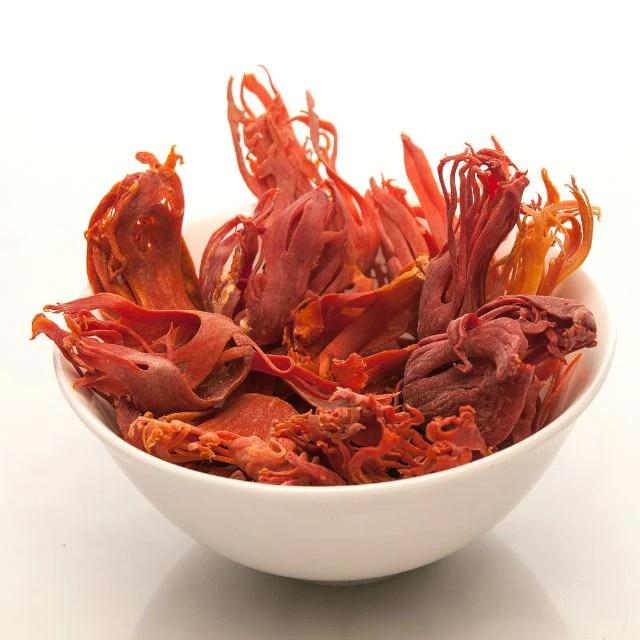Nutmeg, a widely used spice known for its warm and aromatic flavor, has been a staple ingredient in many dishes and beverages for centuries. However, in some cases, individuals may need to find a substitute for nutmeg due to allergies, unavailability, or simply wanting to experiment with different flavors. Fortunately, there are several alternatives that can provide a similar taste profile and enhance the overall taste of a recipe. In this article, we will explore various substitutes for nutmeg, their unique qualities, and how to best incorporate them into your culinary creations. Whether you are a seasoned chef or an enthusiastic home cook, this guide will help you navigate the world of nutmeg substitutes and open up a realm of new possibilities for your gastronomic adventures.
Delicious Nutmeg Substitutes You Need to Try.
Here are some delicious nutmeg substitutes you need to try:
1. Cinnamon.

One of the most widely available and versatile spices, cinnamon offers a slightly sweet and woody essence that can easily replace nutmeg in both sweet and savory recipes. Its warm and comforting flavor complements baked goods, beverages, and even savory dishes like stews and curries.
2. Allspice.

Derived from dried berries, allspice boasts a complex flavor profile reminiscent of a combination of cinnamon, cloves, and nutmeg itself. Hence, it serves as an excellent stand-in for nutmeg, particularly in desserts, fruit-based recipes, and even meat dishes.
3. Cardamom.

With its distinct, aromatic notes, cardamom provides a unique and exotic alternative to nutmeg. While its flavor is slightly spicier, it harmonizes perfectly with sweet treats, such as cakes, cookies, and even coffee or tea-based beverages.
4. Ginger.

Known for its zesty and warm taste, ginger can be an excellent substitute for nutmeg in both sweet and savory dishes. Its bold flavor pairs well with fruit-based desserts, gingerbread, marinades, and stir-fries, effortlessly imparting a delightful kick.
5. Mace.

Derived from the same plant as nutmeg, mace is often considered its close cousin. It possesses a similar flavor profile but is slightly milder and more delicate. Mace can be used interchangeably with nutmeg in various recipes, such as custards, sauces, and baked goods.
6. Cloves.

Although cloves have a more intense and pungent flavor than nutmeg, they can be used sparingly to add an aromatic touch to dishes. Ground cloves work exceptionally well in spice blends, mulled beverages, and sweet treats, providing a distinct and festive flavor.
7. Pumpkin Pie Spice.

A premade blend typically consisting of cinnamon, ginger, nutmeg, and cloves, pumpkin pie spice can be a convenient substitute when nutmeg is not readily available. It offers a balanced combination of warm and aromatic flavors, making it suitable for a wide range of recipes, particularly those with autumnal or holiday themes.
| 💡 Tips Verywel Fit.com Remember, when substituting nutmeg, it is crucial to adjust the quantity of the alternative spice according to your personal taste preferences. While these substitutes can closely mimic the flavor of nutmeg, experimenting with different combinations can help you discover unique and delightful flavor profiles in your favorite dishes. So, don’t hesitate to explore these delicious nutmeg substitutes and continue elevating your culinary experiences. |
Frequently Asked Questions.
1. What can I use if I don’t have nutmeg?
You can substitute cinnamon or allspice for nutmeg.
2. Can I use cumin instead of nutmeg?
No, cumin and nutmeg have very different flavors and are not interchangeable in recipes.
3. Can I leave nutmeg out of a recipe?
Yes.
4. What is the closest taste to nutmeg?
Allspice is the closest taste to nutmeg.
Bottom Line.
Finding a suitable substitute for nutmeg can be challenging due to its unique flavor and aroma. However, in this article, we have explored several alternatives that can be used in various dishes and recipes. Whether you opt for cinnamon, allspice, mace, or cloves, it is essential to consider the desired flavor profile and adjust the quantity accordingly. While these substitutes may not provide an exact replication of nutmeg’s distinct taste, they can add a similar warmth and depth to your culinary creations. Ultimately, experimenting with different substitutes can lead to exciting new flavor combinations and enhance your overall cooking experience.


















































 Workout
Workout 
 Meditation
Meditation 





 Contact Us
Contact Us 















